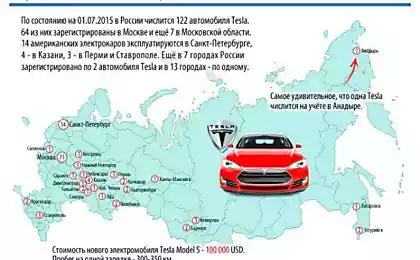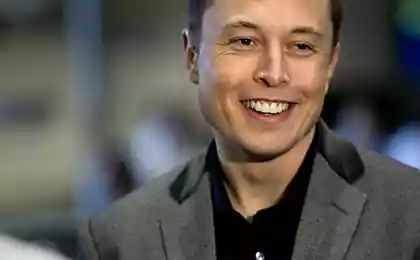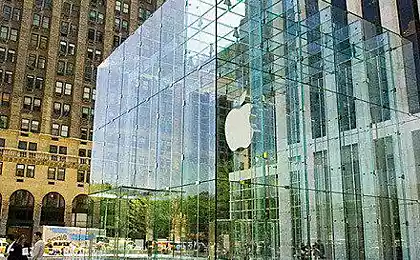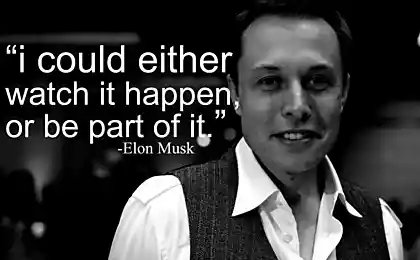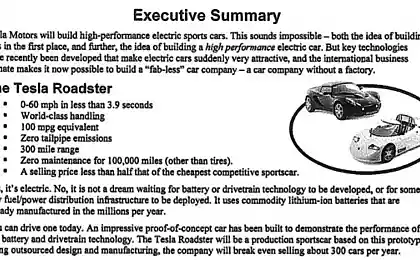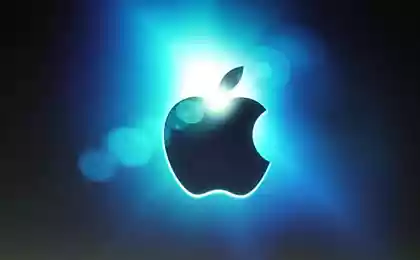1633
On Apple, Google, Tesla and Asymmetric Competition: Interview with Horace Dedewe

Horace Dediu is an independent analyst at Apple and the IT industry as a whole, the founder of asymco.com, one of the most inspiring research experiments in IT, the host of Asymconf, the live-streamed version of Asymco, and the co-host of The Critical Path podcast.

Horace’s analytical reports, which he publishes on his blog at asymco.com, have received widespread public acclaim (Fortune magazine even named him king among Apple analysts), and Horace is known for his appearances on Bloomberg TV, articles for Business Insider and Harvard Business Review. Horace is also the creator of Asymcar, another experiment to apply the theory of disruptive innovation and the concept of jobs-to-be-done in the automotive industry.
About a year ago, I met Horace in person, and not so long ago, he agreed to give me an interview in which he spoke about his projects, plans, attitude to the accumulation and dissemination of information in the modern world and the theory of “asymmetric competition” on the example of Google, Apple and Tesla.
So, Horace, I'd like to start with your biography, although some of its key facts are easy to learn from the material you have in your articles on asymco.com, as well as from guest appearances, like the interview you gave to Dan Benjamin for The Pipeline podcast in 2011. I'm interested in this because I'm trying to understand your story and your motivation, your way of thinking, everything that has influenced how you lead and direct current projects. As far as I know, you come from a family that was involved in science, got an engineering degree in the States, worked in a research lab and a startup environment, then spent eight years as an analyst at Nokia. Can you tell us about how your approach to research and business theory was shaped over the years leading up to the founding of three projects: Asymco, Asymconf and Asymcar?
Yes, it is – my story includes a really long career in technology and then in business analysis as an analyst at Nokia, but my main passion for the first 20 years of my career was technology, so I worked in both research labs and information technology in New York and at a bank; I worked at a startup, actually two startups that were in software development. I took up this problem quite late in the '90s or so, trying to explain how business works. I think my unique... well, maybe not very unique, but the contribution is to talk about business from a technological point of view – it’s kind of an unusual combination.
Horace not only talks about business from a technological point of view - at his Asymconf conference, he uses three screens at once to show the audience a visualization of his conclusions.
It seems that this is the approach you have used for many years, trying to fully explore each area of research, for example, the topic of Apple, which is interesting to me personally. With this approach, you need to have a degree of fearlessness and carefully consider how to deal with the notion of asymmetry. Please tell us more about the concept of asymmetry that you are trying to convey to your readers and followers.
Yeah, that's right. So perhaps the main question I've been trying to answer is why some companies are successful and others are not. Today, according to the generally accepted theory, success or failure in business directly depends on the management methodology, which was thought out either well or not very well. The problem is that a company can be successful for quite some time and then fail without changing its management strategy. How management turns from good to bad is a question that has yet to be answered.
All companies go through a stage of starvation, so to speak, then the stage of saturation. When they’re hungry, they’re more successful, but when they’re full, they’re wrong. This raises the question of other explanations, such as “a company may just be lucky or not.” Unfortunately, this is not a very reliable theory, but just a matter of chance, so we will have to look for a more reasoned hypothesis. Theories developed on the basis of Clayton Christensen’s work boil down to the fact that psychology, the psychology of its leadership, plays a role in the development of the company. However, all companies go through a stage of starvation, so to speak, then the stage of saturation. When they’re hungry, they’re more successful, but when they’re full, they’re wrong. The reason for such changes is not so simple.
According to the asymmetry theory, hungry companies have an advantage over saturated competitors. This is something that has been embedded in the cultural code of our society for hundreds, if not thousands of years. Each of us has come across such moral stories, and even in the Bible one can read stories of asymmetry and success rooted in the discrepancy between the weak and the strong. I think that's the real reason that powerful companies fail, and they have all the resources and they still lose to companies that have very few resources. When you start to think about it, the next step is to think that it causes big corporations to disappear or fall, but it also opens the way for new firms to enter the industry, which are actually the positive driving force – they bring about change, they create a so-called “breakthrough” that sets everything in motion. In fact, the presence of such a mechanism of birth and rebirth in business indicates progress, and in those industries or institutions where such a “rebirth option” is absent, the level of progress is very low.
Yeah, I guess it is. I found it interesting that you said about the “medieval” state of the economy, I mean your line from an interview with The Pipeline – you said that when businessmen are not ready to apply theory to the technology business, it is almost a medieval way of thinking.
Yes, it is true – in the “medieval” state for a long time was in general everything that we call business, commerce and other activities for profit. I don’t want to use the word “capitalism” that is often used in this case, that’s not exactly what I mean. Nevertheless, the instrument of organizing commercial matters has changed dramatically and has assumed the form we see today, perhaps less than two hundred years ago, and in some cases less than a hundred years ago. This mechanism, or rather the way in which it is structured, is today a function of the Industrial Revolution. Before the Industrial Revolution, until about 1820, the way of doing business in Britain was built around the skills of individuals, based on privacy, and almost no scientific approach. The shift, after which businessmen began to hire engineers and scientists, allowed the Industrial Revolution to change everything.
Modern business management training is not a science. There is no theory that can be applied using a scientific approach – it is still a field of mystery. So it's interesting to see how the scientific method has helped to change some aspects of our world. However, management in the tech business is still largely based on privacy and retention of power, which means we don’t know much about how to run a business. This is an unscientific approach to management. Yes, there is some knowledge that is being imparted, but what is taught in business schools is hopelessly outdated – like teaching a craftsman to use a tool without explaining how to make a good thing or another useful tool. There is a gap in business management training, as it is not a science, since there is no theory that can be applied using a scientific approach – it is still a field of mystery. Some wonder that we don’t take a scientific approach to better understand why companies succeed or fail, a gap researchers are trying to fill.
I think the key point, or perhaps one of the key points here, is the asymmetry of sharing information and knowledge. Don't you think we're entering an era of partially open source business, where asymmetry is necessary to create ecosystems and, if possible, dominate them?
Yeah, that's interesting. I think that’s really what Google’s business theory is all about. I believe that Google is trying to take a more scientific approach – of course, not within the framework of disseminating the accumulated information within the company – in fact, they share a very small part of their knowledge, but they try to approach systematically the execution of their operations, namely, to develop ideas, to develop products, to obtain data ... maybe to determine their future actions. This process of development is an attempt to use a scientific approach. And this is much better than what has happened before or is still happening in any other place, where the decision about further actions is reduced to, say, the skills or vision of individuals, their instincts. There is some data that influences the decisions of such individuals, but in a large corporation, it is essentially a normal allocation of resources, which is still mostly top-down.
Google may have tried to allow information to go up from the bottom to allow everyone to have a greater say in decision-making. The result is that they’re now building a lot of products that they’re launching as sources to collect data, then collecting information, and then ... either shutting down or continuing to develop the project. This process of launching many products and using them “experimentally” is a solid scientific process. We can observe its elements. Google may be changing this process. Maybe that approach didn't work out as they hoped - we can't know for sure. However, there is a need for a more scientific approach in the market. Although there is still an element of personal taste, a subjective vision of what management should look like – not everything can be communicated with data.
So as the experiment continues, we'll see how Google continues to work with it. Since this process is, in some ways, mutual learning, it has not yet been properly practiced. I think Asymco’s pilot study is this: I want to see if we can get a small group of companies to share enough information. I will focus on companies in the IT sector. We also want to see if we can get enough information from them to spark a discussion about the subject, and then learn from them enough to improve the way other companies do business - that's my experiment.
Yes, I understand, but I don't think we can really expect these companies to be candid about their management secrets, their scientific processes, and other secrets. But I'm sure we've seen something similar to the concept of asymmetry when, for example, Apple created the iTunes and App Store economy, providing the market with relatively inexpensive or even free tools to create and distribute other people's developments. This is slightly different from what is happening now, for example, at Tesla, which opens up access to its patents, although some analysts still see the move as a charitable act and do not see asymmetry.
Of course, I don’t expect companies to tell you exactly how they make money. Analysts need to take the initiative and monitor such experiments, publish their observations. You see, analysts watch companies, but they keep their observations to themselves so they can only share them with their customers. This is the commercial model of business analysis. The idea is that if I make a forecast for a company, I won’t share it, I’ll sell it. The problem is that such an analytical picture is not tested by the public, the reaction is not checked by peer experts, and so on, even a third party, not the company itself, but an independent person, conducting an analysis, does not share their methods, assumptions, does not explain to anyone where these or other conclusions came from.
So, if you treated business as a phenomenon that is being watched, I hasten to disappoint you – modern analysts cherish information and their observations as very important secrets. It’s as if Galileo Galilei was watching the planets and selling his observations only to the highest bidder. Then only five people would know about his discoveries, knowledge would not spread, and we would not know about his research. The same goes for Newton and all his followers. Business analysis is not open enough. I hope to change the work of the analyst – and it needs to change! – from the person who collects data or keeps it to himself, the analyst should become the one who actively shares information and seeks feedback on this information. That's what's going to happen.
To some extent, this has already been done by scientists, but scientists still hope to gain access to internal data and to achieve a friendly attitude of companies. My approach is to use only those sources that are publicly available and try to provoke a discussion, a broad discussion. We can talk for a long time about the challenges that business researchers face – let’s focus on what we call a hybrid approach: half scientific, half business.
I think Tesla's chances of success are limited. Tesla has not made any innovative decisions in the production process – they copy exactly what everyone around them does.We mentioned iTunes and Apple – there is an element of innovation in its behavior. Tesla is also making its own innovative contribution by not caring too much about preserving intellectual property, but it’s all done by experiment. iTunes has been a success, so let’s see if Tesla succeeds: I think its chances of taking off are limited. Intellectual property is of little interest to Tesla because it is not highly valued in the automotive industry. The little knowledge that automobile companies have gained is kept secret or patented, patent trading is rare, patent pools are not created in the industry, and there are few litigations. Yes, all this happened, but only more than a hundred years ago, not now, because the industry has already finally formed.
The most important innovations in the automotive industry, which turned it into what we have today, concerned the production process, serial production and production on a large scale. The pioneers of innovative change in these areas were Henry Ford and then General Motors, who developed methods of customization or annual changes in the production process, allowing the change of models. Toyota later developed a “just-in-time” system: the industry went through three phases of innovation.
Tesla did not introduce any innovative solutions to the process. At least in terms of production, they copy exactly what everyone else is doing. So their innovative powertrain solutions, battery charging design technologies, are technical innovations, but I’m not sure anyone in the industry is interested in these specific solutions, so there may not be a broad discussion of patents in this area. I believe that the problem of information exchange needs to be explored locally, in terms of innovation and patent issues, what information is shared and what information is not, but within a specific field.
Yes, in the automotive industry, the problem is not that everything is kept secret, but how to effectively implement these secrets, how to build plans, how to organize the process of car production. And in Tesla’s gesture, you can see something out of desperation – it’s more an attempt to share secrets that nobody really wants. If we talk about European manufacturers, for example, they already have so much information about recharging, batteries, electric cars, and all the related technologies that they get from Formula 1, for example.
Yes, and here's the paradox of the computer industry: there are far more completed projects than patents. There are many creative initiatives in this area. It turns out that first a person creates something, and only then he thinks about patenting it. That’s why patent trolls cause so many problems—they’re the only ones who are puzzled by the juxtaposition of a patent and someone else’s invention. In the automotive industry, it is exactly the opposite – the way of execution has not changed for hundreds of years. So patents are a dead weight. In this industry, many unrealized models are created, and no one cares, since the basis of competition in the automotive industry is production capacity.
And production costs here are a pressing issue and a major issue.
In this regard, I am very concerned about how the automotive industry deals with the issue of entering new markets. China has become the largest car manufacturer. Their car factories are being built in new countries all the time, but they are working on the same formulas that were used 40 years ago. Japan’s innovative manufacturing solutions are copying everything these days, so any car company today can use Toyota’s methods...but not as well as Toyota itself. A similar scheme worked, of course, before that: first, each company used a process developed by General Motors, and before that, everyone used what Ford invented. This is how knowledge spreads.
I had a guest on the show who pointed out that when Toyota was actually doing a joint venture with General Motors, it was sharing all of its innovations for free with General Motors, their main competitors, to show, look, we're trying to work together. So, in the automotive industry, the problem for companies is not the preservation of intellectual property, but whether they can access a foreign market, whether the politicians of a country can allow a car manufacturer from another country to build cars on their territory and sell them to the local population. That’s why China, Japan, Korea, the United States, Europe are all engaged in political discussions about auto manufacturing, discussing, for example, who will be allowed into which markets. It all comes down to production. You build a factory that cost you two billion dollars, and then you look for proof that it won’t close because if it closes, you lose all the money you invested.
In addition, it is necessary to combat all regulatory requirements that the government puts forward.
That's right, and here's what happens with innovation like Tesla: there are very few new car companies other than those that are "national," right? There's a little in Korea, a little in China. They are created under the control of the state, with its support and patronage. Tesla, on the other hand, functions more like a start-up, and they are barely self-sustaining – producing just 30,000 cars a year. Perhaps, because of their ambitions, if they increase production by a factor of ten and produce 300,000 cars a year, they will equal the output of one British plant producing niche cars under the Mini brand. Compare what Tesla’s production capacity is today and how many Mini cars are produced. So, even if Tesla increases production by a factor of 10, it will be equal to a subsidiary of BMW, which is a small brand in itself. So far, this business cannot be compared with large automakers.
To contrast, let's take a look at the computer business. In the computer business, a market player like Apple, which didn’t make a single phone eight years ago, now produces about 50 million units a quarter. A year from now, we can expect them to increase production in the range of 150 to 200 million devices, for example, to 170 million phones. And that's 170 million devices that are extremely complex in themselves and that are currently used by about 800 million people. To get a sense of the contrast with Tesla’s 30,000-car figure, Tesla has been making cars for as long as Apple has been making phones. This kind of scaling is happening in the tech business, even if you take into account hardware; you can’t think about software at all – it’s the prerogative of WhatsApp, Facebook...
Software companies are essentially service providers. They have attracted a billion users over the years. They are developing at a much higher rate. But if you look at hardware, Apple and Samsung, they can grow to hundreds of millions of users, and annual shipments to hundreds of millions of devices in just a few years. Samsung, by the way, sells more than 18 million smartphones per quarter while in 2010 did not produce smartphones at all. It took them four years to reach 18 million units. It's an incredible scale of production, logistics, distribution, but there's nothing like that in the automotive industry.
If you want to start production from scratch, you can’t dramatically exceed production rates of several tens of thousands of units, otherwise you’ll have to spend billions of dollars on it. Further, you will not be able to engage in distribution, as your penetration into individual markets will be hampered by dealer networks or protectionist policies. And besides, you can’t build supply chains — Tesla is currently facing the challenge of finding a supplier for their batteries, they’re already thinking about building their own factory, which will take years of time, a few billion dollars, and they’re going to have to look for raw materials, namely lithium, which is actually run by either China or South America, countries that have its deposits, and that’s the problem.
Despite the fact that modern technology directly affects consumer goods, and the clothing industry has not made any significant progress in the past 30 years, the production of clothing, shoes and accessories remains more profitable than the production of phones or cars. If you look at companies, if you look at industries, you see a discrepancy: why is it that in one industry everything works the same way and in another? Both of these industries have the potential to lay the groundwork for future technological progress, as new technologies change these industries for the better. Although these questions are specific to individual businesses, I have again tried to broaden my perspective to take an industry that is exclusively concerned with the production of consumer goods, such as clothes, shoes, bags, everything we wear. You study this industry and ask yourself the same question: Is it getting better with new technologies? In the beginning, hundreds of years ago, it was the main means of achieving competitiveness. It was about industrial technologies, but very soon the development of technology began to directly affect the final consumer goods – the situation has not changed for a good hundred years, and the production of clothes, shoes and accessories remains more profitable than the production of phones.
Why is this happening? This is a very interesting question: if you compare the car business, the apparel business and the IT business, you get the following: over the past 30 years, the IT business has grown rapidly, there has been little development in the automotive industry, there has been no significant progress in the clothing industry at all, and they have completely different ways of making money and very different profitability. It is not necessary that one area is better than another. That's what's interesting. We're going to have to look at the overall situation, and we're going to have to look at many different industries to understand why some things are so different.
Yes, the contrast you just mentioned shocked me and is perhaps the best example of what you’re trying to do at Asymcar, trying to explain and understand asymmetric competition – I think the automotive industry is still capable of regaining technological leadership.
Yes, that’s why I left [Nokia] and started Asymco, a company that primarily studies information technology, and I think that’s what audiences expect, but I wanted to pursue hobbies like cars. Let's look at them as another lens to study business. So at Asymco, I'm using Apple's lens to take this company as a starting point to look at IT, but you can also take cars and try to understand the state of technology through the lens of the automotive industry. By studying and juxtaposing the automotive and IT industries, we can see if there is a common pattern in these areas that helps us understand how business generally works. Maybe it makes sense to expand even further, maybe I’ll do it with existing blogs or podcasts. I'd like to take on the apparel and accessories industry to see how they make money, why apparel and accessories manufacturers operate at 60 percent profitability while selling things that are not protected by intellectual property rights.
Why is one name on a label worth more than another? If the answer to this question is found for the apparel industry, it may also apply to the automotive, computer, and technology sectors of the business. Consumer psychology is the same everywhere. This is another strange thing – these companies do not have intellectual property other than a brand. You can't patent your bag design, you can't patent your shirt color, you can't copyright your clothes. The only protection in the clothing industry is the name on the label. That is, someone can completely copy the object that you just created, except perhaps your name, since the name is the only factor that can influence the formation of the price difference. It's a very interesting idea, I think it's based on the reasons why people are willing to pay, the reasons why people, choosing between the same objects from different manufacturers with different names, are willing to pay more for one of them. The objects are identical, but the names of the manufacturers are different, and one of them acquires great value. I don’t think it’s paradoxical, it’s a very important lesson to learn to understand the psychology of the customer, to understand what the product is.
If objects differ only by the names of the manufacturers, do you pay for the value of the name itself? Why is one name worth more than another? That's the key question, and if you can find the answer in the apparel industry, it might also apply to the automotive, computer, technology sectors. Because in fact the psychology of the consumer is the same everywhere - the buyer who buys all these items thinks the same, his thinking remains the same, so the question is why buyers are willing to pay big money for a very fashionable thing and pay half the price for a cheap copy of it ... well, or a good copy, I'm not saying that cheap is necessarily bad, I mean it's a copy, but much cheaper.
Thus, it is quite possible that these same people will choose between two cars of different brands, and pay a large amount for a car that costs more. But these same people, when faced with the mobile industry, might say, I don’t want to overpay for my phone brand, I just want to buy the cheapest phone in the world – I’m sure in terms of functionality, all mobile phones are the same. This means that in the first two industries, a brand determines the value of a product. That is, the formation of the importance of the brand determines the degree of confidence in it of the buyer. And in the computer business, no one cares about brand creation, its value, the formation of trust, and this has led to the transformation of technology into a commodity and changed the attitude of people to the choice of product at the time of purchase.
This is partly due to Microsoft and Intel. They've commoditized the computer, made it so that we don't care what kind of computer we buy as long as they all support the same software. Maybe in the new era of post-PC that will change, the brand will matter again, because now we have to trust these things more, now they serve as a means of self-expression. I’ve never met a person who would choose between Android and iPhone and, say, Android, but at the same time would say, “I don’t pay attention to the clothes I wear.”..you may not care about the device you choose, but apparently about the clothes you wear and the car you drive, you care more. I want to point out that even the Chinese, who are the creators of lower-priced products, don't even wear three-dollar T-shirts. They also prefer to buy clothes of more expensive and quality brands.
It’s really interesting, and it’s a very interesting insight – thank you for sharing your next plans and the topics you’re going to tackle... and I have to thank you for giving me an interview, Horace, I really appreciate the time you’ve given me.
Thank you very much, Dmitri, and thank you for inviting me.
Source: habrahabr.ru/post/240849/
Almost cosmic catastrophes occurred, part 3
Today, the work is a lot of laptops. It turned out to be reliable device.

